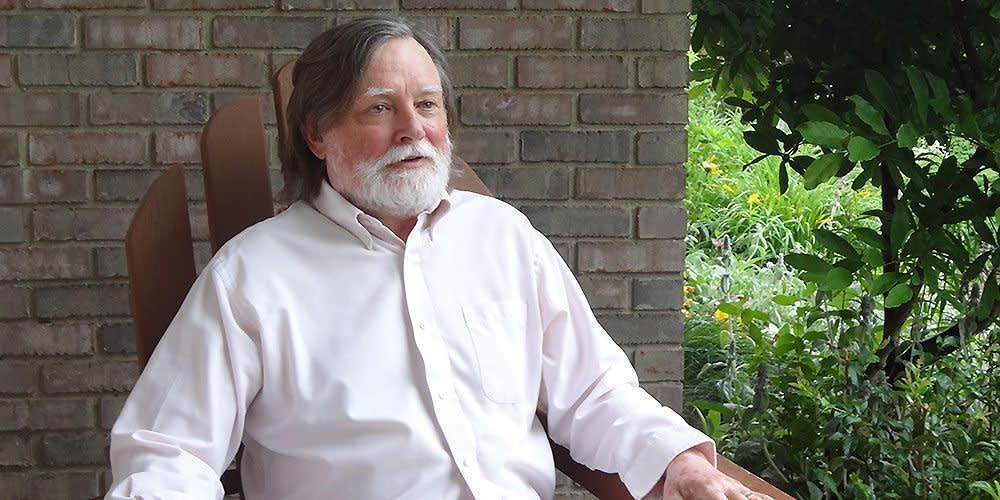
Note: This is a mature subject and the story is intended for Little League parents and adult volunteers.
Ken Stockton vividly remembers being drafted to his Little League® team in 1960.
“It was the team you wanted to be on,” said Mr. Stockton. “When I was growing up, baseball was the primary sport. Everyone aspired to play in the big leagues, including me. My coach was good, he was young, he had the skills, and had a capability to develop players. I was excited when I was picked for his team. He was also a pretty proficient pedophile.”
Mr. Stockton’s coach, like so many child predators, was respected in the community and by parents. He was the last person anyone expected to be a pedophile.
“I was vulnerable, and he targeted me,” said Mr. Stockton. “It started with extra practices and led to him gaining my parents’ trust and finding opportunities for me to be with him in one-on-one situations.”
The abuse took place when Mr. Stockton was 11 to 14 years old. He was even his coach’s assistant after his Little League seasons were over. They went on trips together, including to the 1962 Little League Baseball® World Series. His teammates and friends had no idea that the coach they all respected and learned from was a predator.
Throughout his adult life, Mr. Stockton has come to terms with his assault, but, like many abuse victims, he’s suffered periods of unexplained and misplaced anger, placed blame on himself, and developed trust issues. After years of therapy, he confronted his former coach and has shared his story with his friends and numerous media outlets. Yet, Mr. Stockton considers himself fortunate because unlike other children who have been through a similar horrifying experience, he is a survivor, has a loving family, and has been able to find ways to cope with his youth being stolen.
Vigilance Without Paranoia
When it came time for Mr. Stockton to register his three children for youth sports, he didn’t hesitate to give them that opportunity, but it wasn’t without some level of anxiety, and he certainly was more observant and vigilant than most other parents.
“I am a strong believer in the value of youth and amateur sports,” said Mr. Stockton. “It’s so much more than building playing skills, but learning things like teamwork and developing the ability to win with pride and lose with dignity. I wanted my kids to have that opportunity as well.”
A message that Mr. Stockton refers to often is vigilance without paranoia, and he encourages all parents of Little Leaguers® and other youth sports to follow that mantra.
“In the 50s and 60s, when I was a kid, the culture was entirely different,” said Mr. Stockton. “Today, the issue of child predators is on the front burner, yet only 30 percent of sexual assault cases are ever reported. Predators will exploit good youth sports programs that give them access to children. That doesn’t mean parents shouldn’t sign their kids up, but rather ensure that they are vigilant and aware of the adults active in their children’s lives.”
In 2003, Little League International launched its Child Protection Program and became the first youth sports organization to mandate checks of the sex offender registry for volunteers. Starting with the 2017 season, Little League expanded this regulation, requiring full criminal background checks on all volunteers with regular service and repetitive access. No local league can permit any person to participate in the league in any manner whose background check reveals a conviction for, guilty plea, no contest plea, or admission to any crime involving or against a minor.
To support local programs, Little League International provides 125 free criminal background checks for every league. Little League also continues to work with child safety and protection leaders, such as the National Center for Missing and Exploited Children (NCMEC), to provide parents and volunteers with educational information and state-by-state laws and regulations through its publications, rulebooks, and digital platforms.
“Little League is one of the best when it comes organizations working to protect children,” said Mr. Stockton. “But parents can’t just check the box. You wouldn’t just buy a helmet and not make sure your kid was wearing it. Even with these protections in place, there is always a risk. But with the proper awareness and checks, there is no need to put a protective shell around children and have overwhelming anxiety about signing children up for sports and activities.”
Even in a more vigilant culture, child abuse continues to be a tragic headline in the news, with high-profile cases involving all youth sports organizations. Yet, through it all, Mr. Stockton looks at the positives of the Little League experience and the importance of youth sports in today’s society. He looks back to the friends he made, the joy he had playing the sport, and the many positive life lessons he learned. And more than 50 years after his own abuse, Mr. Stockton’s message of vigilance without paranoia is more important than ever.